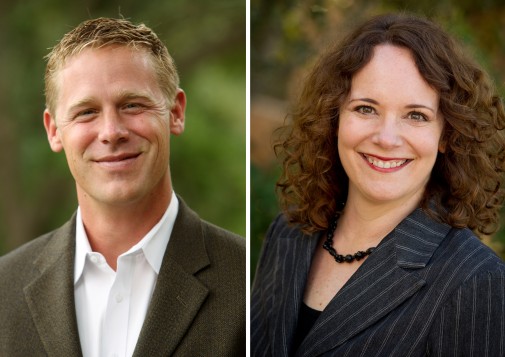Talk to Focus on Global Security, Gates
By
Westmont

Westmont political science professors Susan Penksa and Tom Knecht analyze the challenges of national and global security in a free, public lecture Thursday, Feb. 9, at 5:30 p.m. at University Club, 1332 Santa Barbara St. Tickets are not needed, although the limited seating is available on a first-come, first-served basis. For more information, please call 565-6051. The lecture, “National and Global Security in the 21st Century,” is part of Westmont Downtown: Conversations about Things that Matter, which is sponsored by the Westmont Foundation. The talk relates to the Westmont President’s Breakfast that features former Secretary of Defense Robert Gates on March 2.
“We hope to provide a thought-provoking discussion of American and global security in the 21st century, highlighting the important legacy of Secretary Gates,” says Penksa, who has an international consulting practice. “I’ll focus my remarks on civil and military cooperation, the relationship between security and development, and the changing nature of power.”
In 2010, the U.S. Department of State awarded Penksa a follow-on Fulbright grant, which allowed her to return to Bosnia and Herzegovina to build on the work of her 2007 fellowship. She has co-authored a book, “The European Union in Global Security: The Politics of Impact,” which will be published in March.
“Robert Gates is one of the most important and influential defense secretaries in American history,” says Knecht, a Stanford graduate who earned a master’s degree and doctorate at UC Santa Barbara. “I will examine Secretary Gates’ appointment in the Bush and Obama administrations, his leadership of the Pentagon and his vision for American foreign policy.”
Knecht, who taught at the University of Denver for five years before arriving at Westmont in 2009, has published a book, “Paying Attention to Foreign Affairs: How Public Opinion Affects Presidential Decision Making.”
Filed under
Academics, Faculty and Staff, Lectures, Press Releases